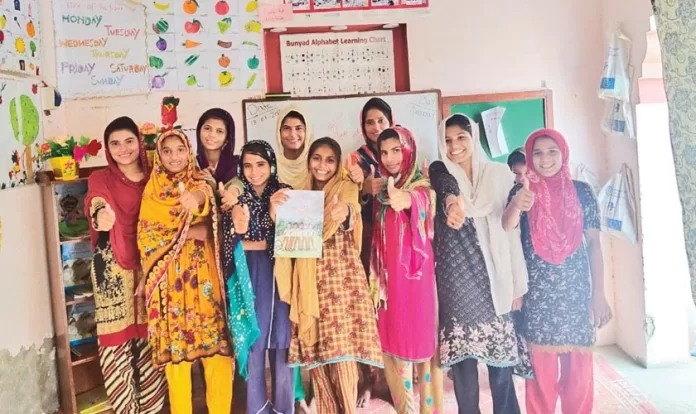Vocational Training in Pakistan, like many developing nations, grapples with a pressing issue: the mismatch between its low-skilled labour force and the demands of the global market. Despite a long history of exporting semi and low-skilled workers, particularly to Gulf nations, Pakistan finds itself facing challenges due to a lack of English language fluency and other soft skills. This disconnect not only limits the export of skilled labour but also results in lower wages for Pakistani workers compared to their counterparts from other developing countries. Over the years, the number of Pakistani workers seeking opportunities abroad has surged. Recent data from the Bureau of Emigration and Overseas Employment (BEOE) reveals that between 1971 and 2023, over 13.3 million workers registered themselves for employment abroad.
In 2023 alone, approximately 862,625 workers were sent abroad, with 91% finding opportunities in countries like Saudi Arabia, the UAE, Oman, Qatar, Bahrain, and Kuwait. Despite being employed across various job categories abroad, about 52% of Pakistani workers are engaged in low-skill or semi-skilled roles. This trend persists despite the dominance of roles like labourers and drivers, highlighting the need for targeted policies to maximize Pakistan’s human capital potential and adapt to changing labour market demands.
The decision to migrate is driven by a combination of push and pull factors. Economic challenges, labour market difficulties, and weaknesses in governance structure serve as push factors, while increasing labour demand, income disparities, and familial ties abroad act as pull factors.
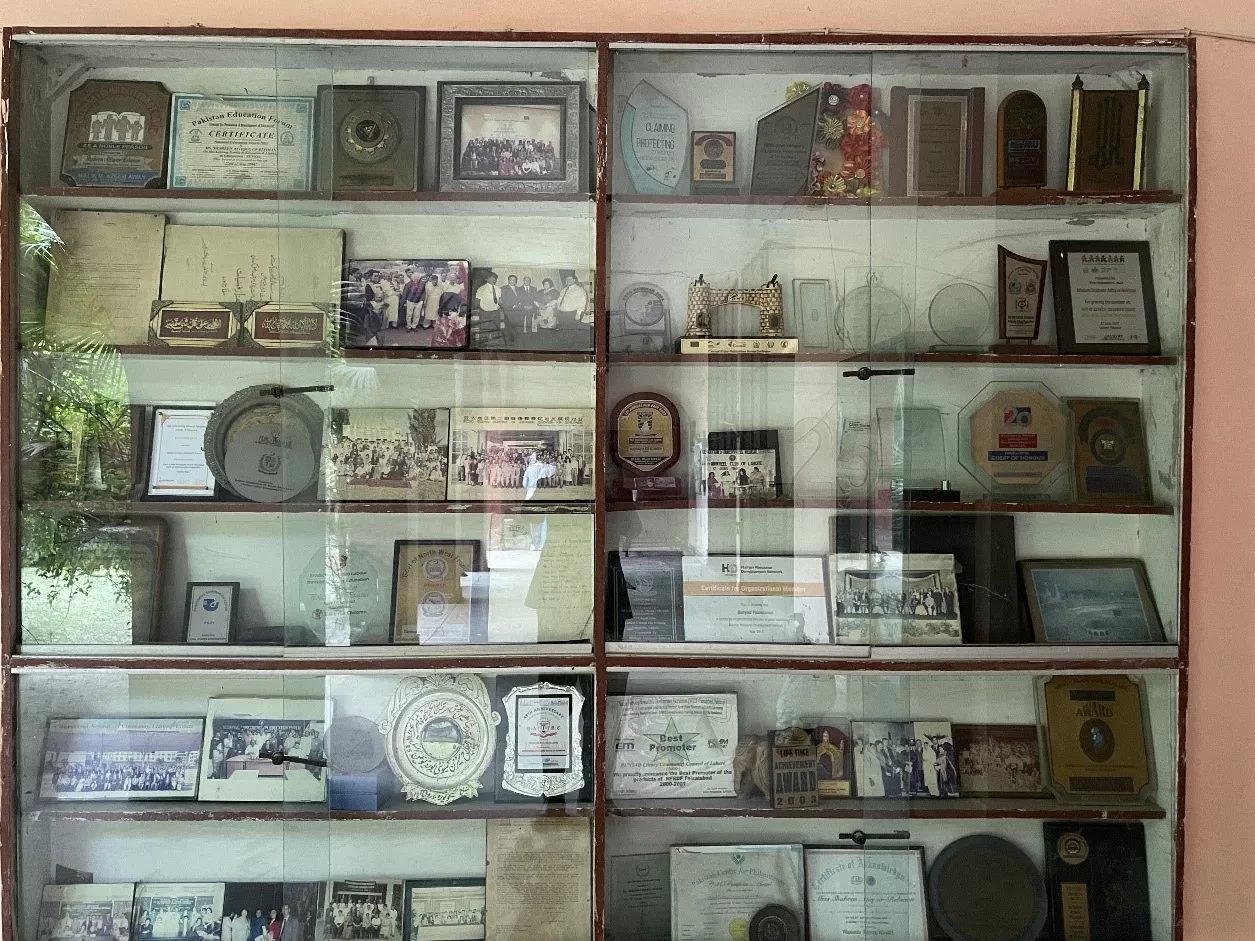
The export of labour to Saudi Arabia has become difficult now because of the demands outlined in Saudi Vision 2030 and the prioritization of local labour participation. These factors pose significant challenges for Pakistani workers. Additionally, competition from other labour migration countries like Bangladesh and the Philippines, as well as skilled workers from India and the Philippines, further limits opportunities for Pakistani migrants.
To address these challenges, Pakistan must prioritize skill development and market diversification. Initiatives should focus on upskilling labourers to meet evolving job requirements and aligning policies with Gulf countries’ trends and laws. Improving pre-departure training services and exploring job opportunities in developed and emerging markets beyond the Gulf are also crucial steps.
There are more than 500 vocational institutes in Sindh and 1600 in Punjab, but a report by the British Council found that there are disparities between skills required by the employment market in Sindh, skills available in the young adult population and skills being taught by further education skills institutes.
It was found that in Sindh, employers wanted English language in skilled labour but it was not an area of focus for training institutions and graduates do not have the required skills. To overcome such barriers and incorporate required skills in the curriculum of Technical and Vocational Institutes, provincial and federal governments must devise a policy and implement it throughout the country.
Bunyad Foundation and Vocational Training
Bunyad Foundation is working in several areas be it adult literacy, child education, women and child protection, against child labour, formal and non-formal education, gender equality and women empowerment, minority rights, and capacity-building units in communities all over Pakistan. Their efforts to make women empowered through adult literacy and vocational training are remarkable.
Bunyad Foundation’s Commitment to Global Goals
Aligned with the Education for All (EFA) and Sustainable Development Goals (SDGs), Bunyad endeavours to eradicate poverty through education. Over one million individuals have been empowered with literacy through various initiatives such as Non-Formal Education, Adult Education, Community Learning Centers (CLCs), Formal Education, and Mobile Phone Literacy programs.
The vision of Ms Shaeen Attiq ur Rehman, founder of the Bunyad Foundation, is awe-inspiring. Her dedication towards women’s literacy and skill development is astonishing. She has been working in far flung areas of Punjab, some of which are not even accessible through decent roads. The situation of women and children is worse beyond imagination. She has established 5,526 Non-Formal Education (NFE) centers across 1,800 villages spanning 22 districts. The Bunyad Foundation has reached the most remote corners to work for the underprivileged and provide them with their basic right of literacy. Moreover, the foundation’s outreach efforts have touched the lives of 353,999 direct beneficiaries, with a significant emphasis on empowering women and children. Notably, Bunyad’s commitment to female empowerment is evident, with 77% of all beneficiaries being women, adults, and children combined.
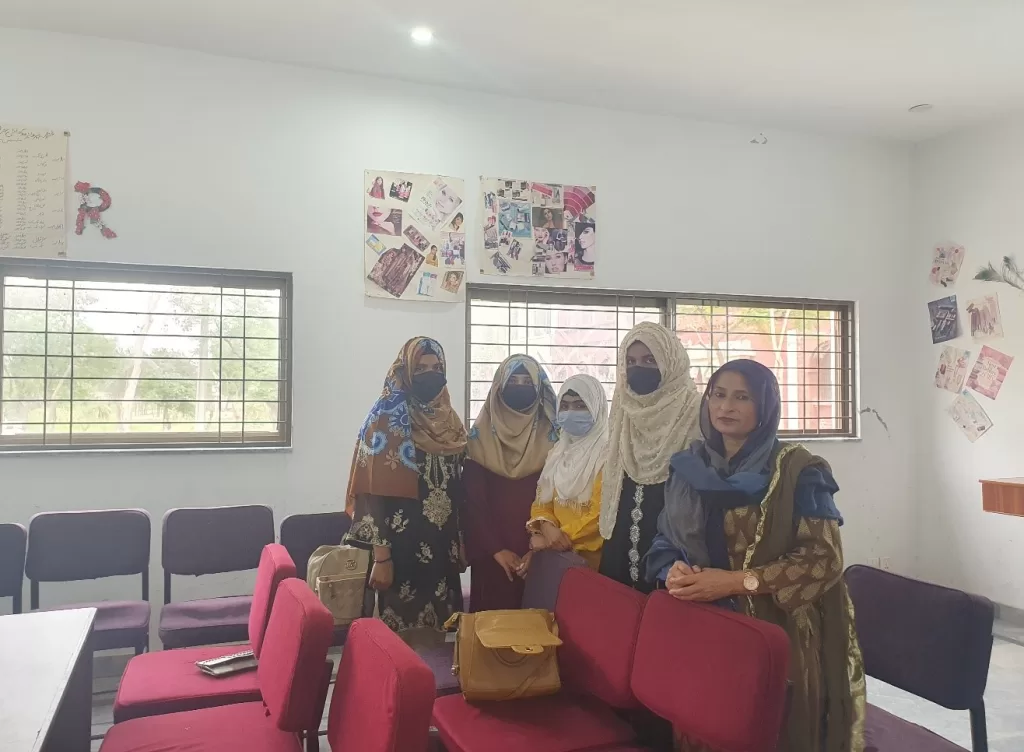
Literacy and non-formal education are essential to bring labour, especially women into the economic mainstream. Embroidery, Stitching, and Beauty services are a few skills that women in Pakistan are allowed by their male family members as in a patriarchic society. Bunyad collaborates with both public and private sectors to address present community needs while ensuring resources are preserved for future generations. By focusing on literacy, education, health, and livelihood, Bunyad aims to elevate the Human Development Index (HDI) and foster social cohesion.
The Bunyad Foundation envisions a society where literacy, enlightenment, tolerance, and justice prevail, ensuring equal opportunities for all individuals, particularly rural families, with a special emphasis on women and children. The mission of the foundation is to empower marginalized groups, especially rural women and children, through literacy, education, gender equality, and economic empowerment. This is aimed at improving their quality of life and fostering self-reliance while enhancing social development in communities through comprehensive programs.
The objectives of the Bunyad Foundation are to promote literacy, empower women and children, enhance living standards sustainably, and alleviate poverty. These goals are pursued through various means, including integrating income-generating activities and skill training with literacy programs, organizing motivational campaigns to mobilize communities towards Education for All (EFA) goals, implementing collaborative projects with government and civil society partners, supporting local NGOs in sustainable development initiatives, and providing credit and loans to individuals and community-based organizations to alleviate poverty effectively.
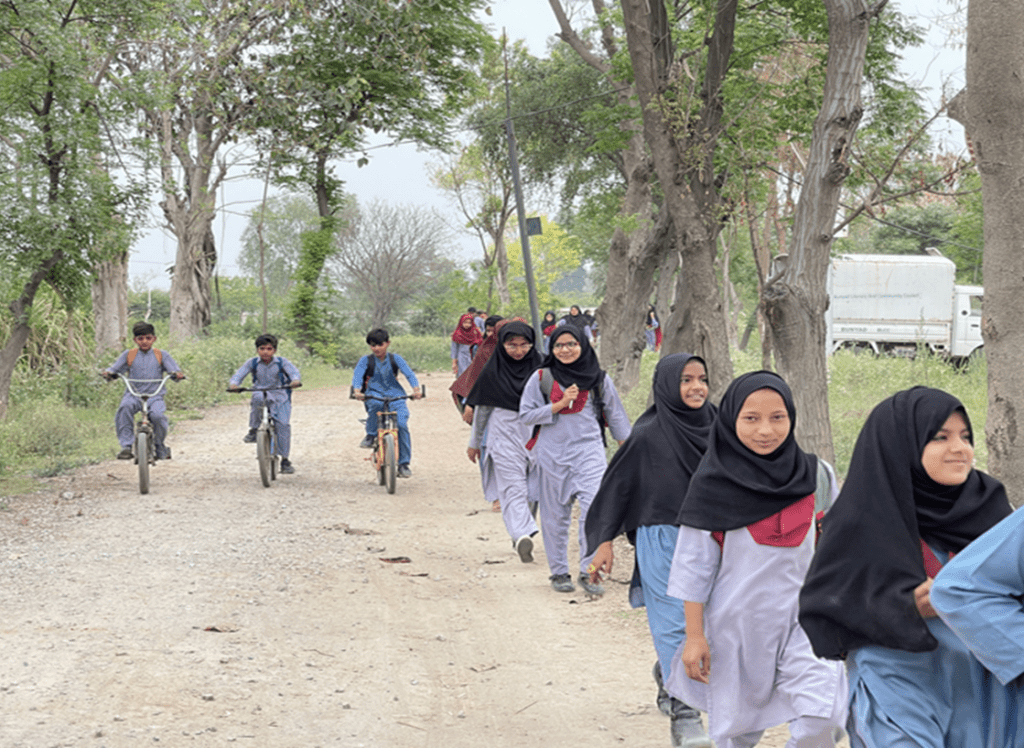
In the context of Pakistan, as in many parts of the world, the terms “literacy” and “education” are often used interchangeably, but they represent distinct concepts with significant implications for individual development and societal progress. Literacy, encompassing the ability to read, write, and understand written language, enables individuals to decode symbols, comprehend communication, and express themselves through writing. It extends beyond formal schooling, incorporating avenues such as adult literacy programs and self-learning. Literacy empowers individuals to navigate daily activities and is fundamental for further education. In contrast, formal education operates within structured environments like schools and universities, providing comprehensive knowledge across subjects, fostering critical thinking, and offering specialized skills for specific careers.
While literacy lays the foundation, formal education builds upon it, offering structured learning environments and specialized knowledge. In today’s context, integrating soft skills, embracing technology, supporting entrepreneurship, ensuring flexibility, and obtaining certification are crucial aspects of both literacy and formal education, empowering individuals for success in the dynamic modern world.
The Bunyad Foundation Khurshid-Zaman School of Vocational Training & Skills Development for Girls is situated adjacent to the founStudents walking back to home dation’s head office. This school provides high-quality vocational training and skills development programs to its students. The foundation behind the school recognizes the importance of equipping girls with practical skills that can help them secure employment and achieve financial independence. By doing so, they aim to break the cycle of poverty and empower these girls to lead fulfilling lives. Their focus is on stitching and embroidery, beautician services, and computer literacy. Due to financial constraints and limited access to the main markets of Lahore, women are getting skills but they are unable to sell their skills. In the case of beauty services, girls after learning the skill work at different beauty parlours in other areas of Lahore.
While students are willing to work and earn for their families no transportation facilities are available. Unsafe commute for girls is a huge problem as male family members usually don’t allow girls to travel alone amd because of transportation issues, many girls had to end their education journey.
Girls are accompanied by their younger brothers to the vocational center, where young girls and boys study at the Bunyad school and return home together. It is called as Walking Bus as girls are walking together with boys. The students at
the vocational center also walk back home with them. It is a great example of community work.
Another issue highlighted by instructors at the vocational center was of lack of marketing and access to the market for selling their products. Mobile literacy and the use of the internet/technology to sell their products are essential for sustainable employment. Women need a big market but that is only possible with digitalization and financial inclusion of women. Technological advancement has made the lives of women easier in other parts of the world, the Bunyad Foundation can do the same by training their female students. It is important to give them access to the internet and digital payments, training on using mobile phones for marketing on social media and also opening Asaan Mobile Accounts (AMA) for sustainable employment.
Through AMA these women can make and receive their payments on the phone, making selling/purchasing easier. AMA is the easiest to open accounts and make transactions online which resolves the issue of women’s mobility.
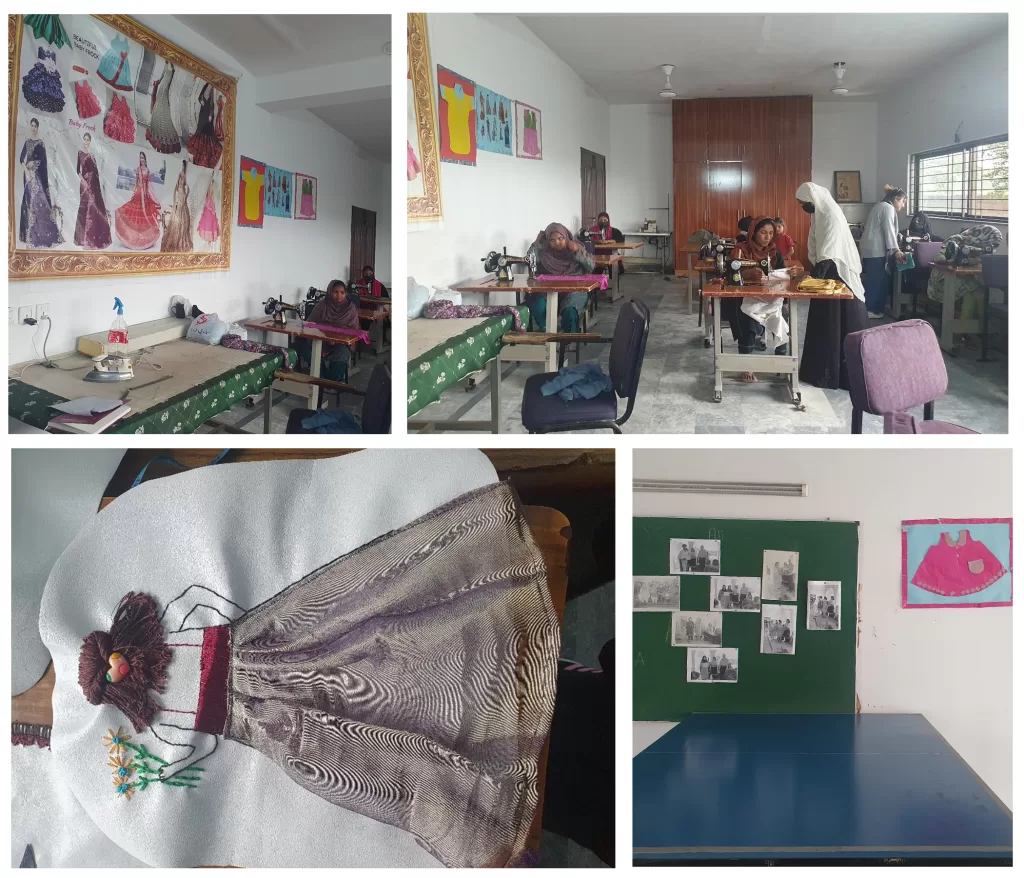
Financial and Digital Inclusion of Women
Financial inclusion of women and digitalisation of Pakistan’s economy is inevitable for sustainable development. These poor women get training in the vocational centers but due to a lack of knowledge and access to the market, they can’t use their skills and earn money. Certification of skill and easy access to markets is crucial for long-term employability. National Vocational and Technical Training Commission (NAVTTC) can collaborate with the Bunyad Foundation to resolve these problems. NAVTTC can issue certificates after conducting tests in the vocational centres for different skills and also English language proficiency. International certification of skilled labour an be a game changer for lowskilled labour of Pakistan.
The Bunyad Foundation has been working for girls/women’s literacy for decades, it is time to empower women through digital networking and financial inclusion. Skilled taught in their vocational centers all over Punjab need certification and introduction of soft skills, especially the English language. Pakistan low skilled labour can’t compete in the world market due to a lack of soft skills including communication, time management, problem solving, adaptability, and others. The demand for Pakistani Paramedical staff, especially nurses and females in the hospitality sector is high in the Middle East but the lack of communication in English (also Arabic proficiency) is a barrier to exporting skilled labour.
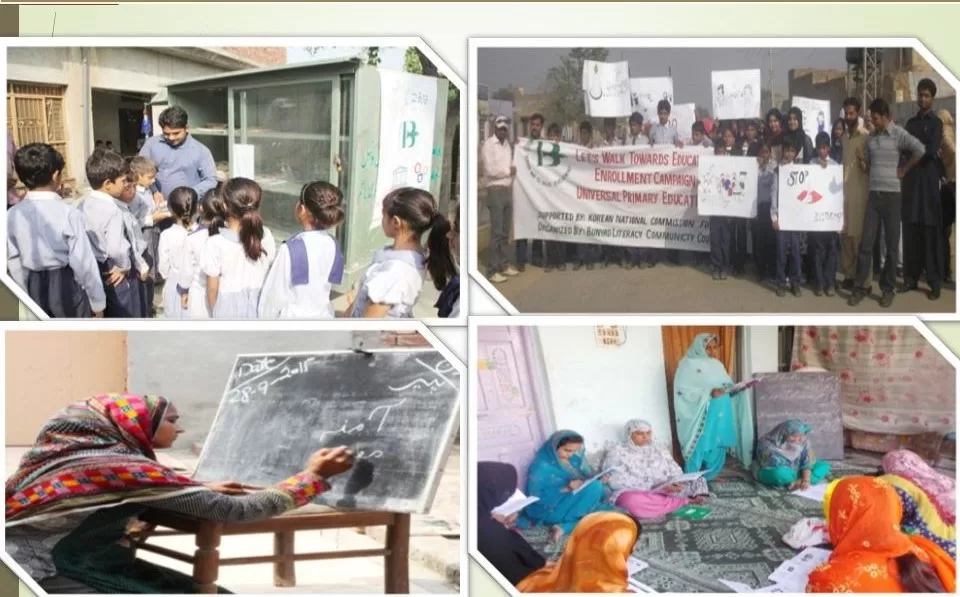
In vocational training, having technical skills is important, but having a strong proficiency in the English language can significantly improve the employability and career prospects of Pakistan’s workforce. English is the dominant language of international business communication, which means that graduates with proficient English have access to a wider range of job opportunities, both locally and globally.
Many technical resources and knowledge are also available in English, allowing graduates to access and understand the latest advancements in their fields. Improved communication through English proficiency also fosters better collaboration and innovation with colleagues, clients, and partners from diverse backgrounds, opening doors to leadership roles, project management opportunities, and international career paths. Mastering English can boost self-confidence and overall communication skills, empowering graduates to excel in their chosen professions.
The Bunyad Foundation, with its focus on empowering marginalized groups, particularly women, is well-positioned to address the need for English language skills among vocational training graduates. By developing specialized English for Specific Purposes (ESP) courses within vocational training programs and offering foundational English language courses, it can prepare women for further specialized training and entrepreneurial endeavours. Partnering with EdTech companies to develop mobile applications offering accessible and self-paced English language learning modules can further enhance the accessibility of English language training. It will equip Pakistan’s workforce with a powerful combination of technical skills and effective communication, empowering them to become more competitive and contribute to the nation’s economic and social development.
Bunyad’s impact extends far beyond individual empowerment. By focusing on skills development, they create a ripple effect, fostering financial security within families and contributing to the overall social well-being of communities. Their collaborative approach, working with both public and private sectors, ensures programs are tailored to specific community needs.
The results speak for themselves. Over a million individuals have benefitted from Bunyad’s literacy and vocational training initiatives. Their commitment to the UN’s Education for All and Sustainable Development Goals is evident in their unwavering focus on empowering marginalized groups, particularly women, through education and economic opportunity.

By addressing current challenges and exploring new opportunities, Pakistan can maximize its labour potential, secure better opportunities for its citizens abroad, and sustain growth in labour exports, thereby supporting the economy through sustained remittances and enhancing the country’s global standing. The Bunyad Foundation serves as a model for bridging the literacy-to-employment gap in Pakistan. Their dedication to empowering women with relevant skills paves the way for a brighter future, not just for individuals, but for entire communities.
The scope of such organisations and achievements is an eye-opener for the people of Pakistan, who mostly complain about the lack of government efforts to reduce poverty. Development is Poverty reduction but poverty reduction is not development. Poverty reduction is an effect of development. The government and private sector must invest in human capital and efforts to equip labourers with soft skills, which is an essential ingredient for the development of people. Collective efforts in the right direction can bring a change.


